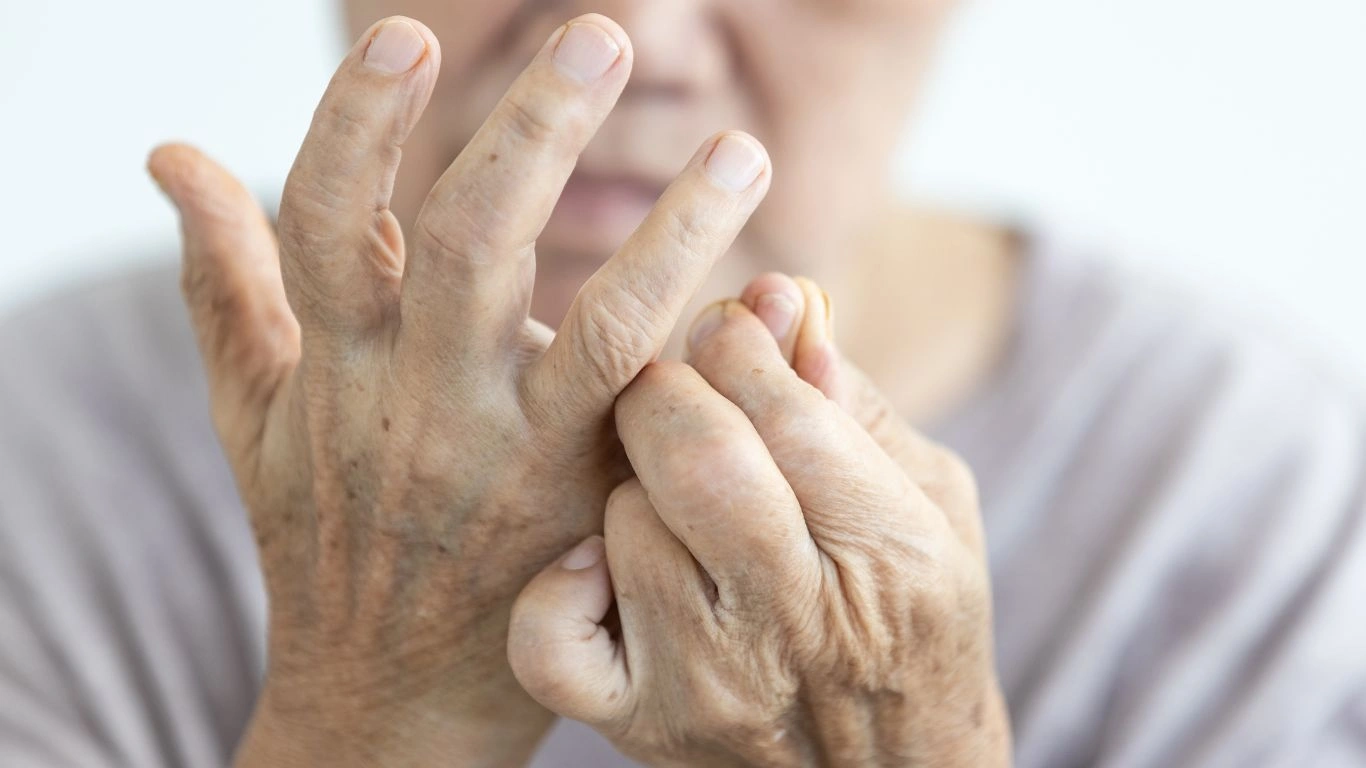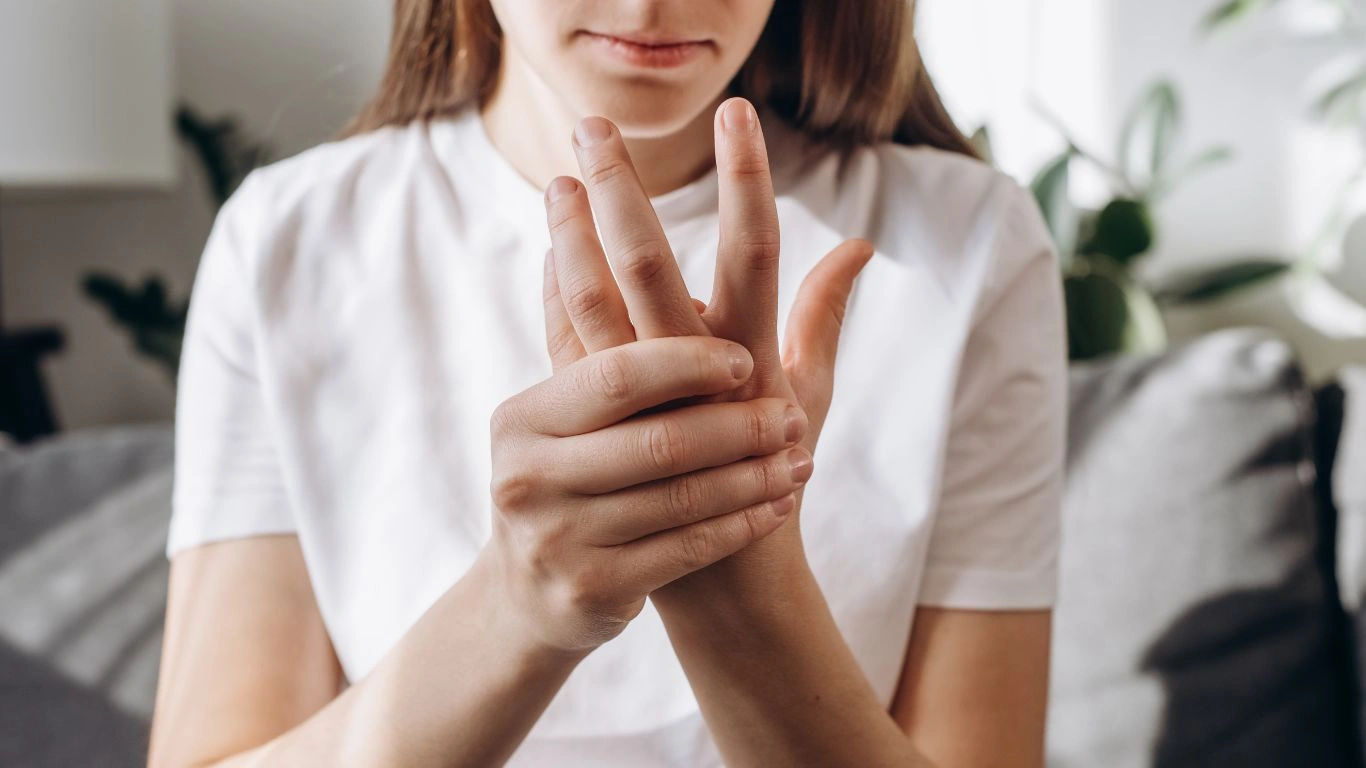Can Rheumatoid Arthritis Affect Your Bladder? Shocking Link Exposed
Can rheumatoid arthritis affect your bladder? It’s not a question I get every day, but when I do, the look on a patient’s face tells me everything — surprise, worry, and a tinge of “why hasn’t anyone mentioned this before?” As a rheumatology nurse practitioner, I’ve seen first-hand how RA can show up in places you’d never expect, far beyond joints and fatigue. The bladder might not be the first organ that comes to mind when we think about autoimmune diseases, but it deserves a seat at the table, especially when patients start talking about urgency, incontinence, or urinary discomfort with no clear explanation. So let’s talk about it — real talk, no fluff, just what you need to know.
So… Can Rheumatoid Arthritis Affect Your Bladder?

Short answer: Yes, it can. And while it’s not super common, when it does happen, it can really mess with your quality of life. RA is a systemic inflammatory autoimmune disease — emphasis on systemic. That means it doesn’t just stay in your knees, wrists, or fingers. It can potentially affect everything from your eyes to your lungs… and yep, even your bladder.
Let’s be clear: we’re not saying that RA causes bladder issues in everyone. But when bladder problems start to pop up in someone who already has rheumatoid arthritis, it’s worth looking deeper. I’ve had a few patients who chalked up their frequent bathroom trips to aging or too much coffee, only to find out later that their immune system might be playing a bigger role than expected.
Understanding the Connection Between RA and Bladder Dysfunction
Here’s where it gets interesting. The bladder itself isn’t a joint, so it might seem strange that RA could affect it. But autoimmune diseases are tricky like that. There are a few ways this can happen:
- Inflammation of nearby nerves – RA-related inflammation may affect the nerves controlling the bladder, leading to issues like urgency or incomplete emptying.
- Side effects of medications – Some of the medications we use to manage RA, like biologics or even NSAIDs, can indirectly impact the urinary system.
- Secondary autoimmune overlap – Patients with RA are at higher risk for other autoimmune conditions, including interstitial cystitis or Sjogren’s syndrome, which can have bladder involvement.
As someone who’s seen patients juggle multiple autoimmune issues, I can tell you — it’s rarely ever just one thing. Bladder issues in RA are often a piece of a larger puzzle.
Symptoms That Shouldn’t Be Ignored

When we talk about rheumatoid arthritis affecting the bladder, it’s not always black and white. But there are some red flags I encourage my patients to keep an eye on:
- Increased urinary frequency without an obvious cause
- Sudden urgency or incontinence, especially if it’s new
- A burning sensation without signs of infection
- Waking up multiple times at night to urinate
- Sensation of incomplete emptying
If any of this sounds familiar, it’s not something to brush off. I always tell patients, “Your body whispers before it screams.” These might be whispers that something deeper is going on.
Patient Story: More Than Just a UTI
Let me share a quick story (name changed for privacy). A patient of mine — let’s call her Maria — came in complaining of recurring UTI symptoms, but her urine cultures were always clean. No bacteria, no obvious cause. She was also dealing with a flare-up of her RA. After some digging, we discovered she was also experiencing symptoms of interstitial cystitis, likely linked to autoimmune activity. Once we adjusted her treatment plan and involved a urologist familiar with autoimmune overlap, her symptoms dramatically improved.
It’s these kinds of stories that remind me why it’s so important to take a holistic look at autoimmune disease. If I had dismissed her bladder symptoms as unrelated, she’d still be suffering.
RA Medications and Their Impact on the Bladder

This is something I talk about a lot in my practice. RA medications are life-changing — literally. But they aren’t without their quirks. Certain drugs can mess with your kidneys or bladder function, or trigger changes that mimic urinary symptoms. Here are a few worth knowing about:
- NSAIDs: Can irritate the lining of the bladder and may affect kidney function over time.
- Methotrexate: Though not common, it can cause urinary changes, especially if hydration is poor.
- Biologics: Some patients report increased urinary frequency or discomfort, often dismissed unless a provider is looking for it.
Monitoring is key. I usually recommend patients let me know about any new urinary symptoms right away, especially when we’re starting or adjusting medications. It might feel awkward, but I promise, we’ve heard it all — and it could save you a lot of discomfort down the road.
When to Loop in a Urologist
One of the best parts of working in rheumatology is collaborating with other specialties. If I suspect a patient’s bladder symptoms go beyond the usual suspects, I don’t hesitate to loop in a urologist, especially one with experience in autoimmune cases. Together, we can rule out infections, structural issues, or more complex causes like neurogenic bladder or interstitial cystitis.
Trust me — it’s not about overreacting. It’s about being thorough. As one of my mentors used to say, “Autoimmune diseases don’t follow the rules.”
Can Rheumatoid Arthritis Affect Your Bladder? Let’s Talk Neurology

Now let’s dig into something that often flies under the radar — the *nervous system connection*. I’ve had a handful of patients with RA who also started developing symptoms like numbness, tingling, or even weird pelvic sensations. It’s easy to chalk those up to sciatica or aging nerves, but sometimes it’s deeper than that.
See, RA doesn’t just cause joint inflammation — it can also affect the *nervous system*, particularly when there’s inflammation around the spine or in the sacral region. And since your bladder function relies heavily on a network of nerves (especially from the lower spine and pelvic floor), any inflammation or damage to those areas can cause misfires — think urgency, retention, or even incontinence.
One patient I worked with had RA and began noticing she couldn’t “feel” the urge to urinate until it was too late. Turns out, her MRI revealed some inflammation around her lower spine — not enough to paralyze or cause motor symptoms, but definitely enough to interrupt nerve signaling. With the right rheumatology-neurology teamwork, we were able to treat the inflammation and restore her bladder control. It was a relief — for both of us.
RA and Pelvic Floor Dysfunction: A Commonly Missed Link
This is another area that deserves more spotlight. You’d be amazed how many of my RA patients (especially women over 40) quietly deal with pelvic floor issues. They think it’s “just part of getting older,” but pelvic floor dysfunction can be *exacerbated* by chronic inflammation, joint pain, and reduced mobility — all part of the RA experience.
When your core and pelvic muscles are already working overtime to compensate for weak joints or chronic pain, it can create imbalances that put strain on the bladder. Add in fatigue or stiffness, and suddenly you’ve got a recipe for leakage, discomfort, or even urinary hesitancy.
- Difficulty fully emptying the bladder
- Feeling pressure or heaviness in the pelvic area
- Accidental urine leakage during movement or coughing
In these cases, I often refer my patients to a pelvic floor physical therapist. Let me tell you — it’s a game changer. I’ve seen patients go from planning their lives around bathroom access to regaining confidence just by learning how to support their pelvic floor.
What Tests Can Help Connect the Dots?

Here’s the thing: if a patient with RA starts having bladder symptoms, I don’t just assume it’s a coincidence. I start by asking questions that explore the *timeline*, *triggers*, and *medication history*. From there, we look at diagnostics that can shed some light:
- Urinalysis & Urine Culture – Always rule out infection first. Sometimes it’s just a UTI. But when it’s not… we dig deeper.
- Bladder Scan or Post-Void Residual Test – Helps check if the bladder is emptying properly. Retention could mean nerve involvement.
- Pelvic Ultrasound – Can help rule out other gynecologic causes or structural issues.
- MRI of Spine or Pelvis – Especially if neurological symptoms are present.
- Urodynamic Testing – Usually handled by urology, it checks how the bladder stores and releases urine.
Sometimes, patients feel overwhelmed by all the testing. I get it — I always explain why each test matters and how it ties into their bigger RA picture. Informed patients are empowered patients.
When RA Mimics Interstitial Cystitis
This one deserves a special mention. Interstitial cystitis (IC), or painful bladder syndrome, often presents like a chronic UTI — burning, pressure, frequent urination — but there’s no infection. Sound familiar?
In some RA patients, chronic bladder inflammation from immune dysregulation can mimic IC. I had one patient who was treated for “UTIs” six times in one year, with no positive cultures. She was frustrated, and honestly, so was I. Eventually, we had her evaluated by a urologist who diagnosed her with IC linked to autoimmune activity. It wasn’t textbook, but it was real. We adjusted her RA meds and added bladder-specific therapy. Within three months, she told me, “I finally feel like myself again.”
Self-Care Strategies That Actually Help

Let’s talk lifestyle. Because while meds are important, there are *real-world strategies* that can make a huge difference in how your bladder behaves, especially when you’ve got RA in the background.
- Stay Hydrated (Smartly): Don’t go overboard, but don’t skimp either. Concentrated urine can irritate the bladder lining.
- Watch Bladder Irritants: Coffee, carbonated drinks, spicy foods — they don’t bother everyone, but they’re worth tracking if you’re having symptoms.
- Build Pelvic Strength: Gentle core and pelvic floor exercises can improve bladder control without stressing joints. I’m a fan of yoga or pilates adapted for RA.
- Use Heat Therapy: A heating pad across the lower abdomen can sometimes ease pelvic muscle tension — not a cure, but it helps!
And let’s not forget the emotional toll. It’s exhausting managing a chronic illness, and bladder issues can feel isolating. I always remind my patients: you are not alone, and you’re not imagining things. If it feels off, it deserves attention.
Final Thoughts for This Round
We’ve covered a lot so far — from the immune system’s sneaky role in bladder trouble to real-world strategies that actually work. If you’re living with rheumatoid arthritis and have ever wondered if your bladder issues are connected, you’re not crazy. And you’re definitely not the only one.
I’ll be digging deeper into treatment approaches, multidisciplinary care, and even more patient experiences next — because this is a conversation that deserves to keep going. There’s more to this than just “drink less coffee” or “it’s just part of aging.” It’s time we treat the whole patient — bladder and all.
Multidisciplinary Care: When Rheumatology Meets Urology

One of the most effective ways I’ve seen patients improve is through collaborative care. I can’t emphasize this enough. When someone with rheumatoid arthritis starts experiencing bladder issues, it often requires more than just a one-specialty approach. This is where multidisciplinary care shines.
I usually start by collaborating with primary care and urology. Sometimes neurology or pelvic floor therapy comes into play, too. We’re talking a whole team approach. The truth is, *your bladder doesn’t exist in a vacuum*. It’s impacted by your nervous system, immune system, and even your emotional stress levels (hello, flare-up triggers!).
Patients often feel relieved when they realize they’re not being passed off — they’re being supported from every angle. That’s how it should be. When we all work together, from rheumatologists to pelvic PTs, patients get answers faster and treatment becomes more effective and personalized.
Real-Life Treatment Plans That Work
No two treatment plans are identical, but here are a few combinations I’ve used with success:
- For bladder pain or urgency with no infection: We may trial antihistamines or bladder-specific meds, and adjust RA meds if inflammation is suspected to be systemic.
- For incomplete emptying: Pelvic floor therapy plus neurogenic bladder evaluation through urology. Sometimes intermittent self-catheterization becomes necessary, but only if absolutely needed.
- For overlapping autoimmune symptoms: Collaboration with a specialist in interstitial cystitis or Sjogren’s syndrome is key. Some patients benefit from bladder instillations or dietary modifications in addition to immunosuppressants.
In my experience, *personalized care always wins*. There’s no one-size-fits-all approach when the immune system is involved.
Can Rheumatoid Arthritis Affect Your Bladder Long-Term?

This is the question most of my patients eventually ask. They want to know if bladder symptoms will get worse, or if they’re stuck dealing with it forever. And here’s the honest answer: it depends.
If we catch the issue early, manage inflammation properly, and get the right specialists involved, many patients see major improvement. In fact, some find their symptoms disappear entirely with proper treatment. But for others — especially if nerve damage has occurred — symptoms may persist or need ongoing management.
That’s why I encourage *early reporting*. Don’t wait six months to mention bladder discomfort. Bring it up at your next visit. Even if it’s minor. The sooner we act, the more options we have.
How to Advocate for Yourself as a Patient
If you take away one thing from this article, let it be this: you are your best advocate. Rheumatoid arthritis is already a complex condition. Adding bladder symptoms into the mix can feel overwhelming, but it’s absolutely valid to speak up — even if your provider doesn’t ask.
Here’s what I tell my patients:
- Keep a bladder journal for a week — track symptoms, triggers, timing.
- List out your RA medications, including how long you’ve been on each one.
- Don’t minimize your symptoms. It’s okay to say, “This is affecting my daily life.”
- Ask if a urology referral is appropriate, especially if your symptoms are new or persistent.
Good communication makes a big difference. And if you ever feel like your concerns are being dismissed — please, seek a second opinion. You deserve to be heard.
Support, Validation, and Real Talk
I’ve sat across from patients who feel embarrassed, exhausted, and defeated by their bladder symptoms. It’s not just about urgency or pain — it’s about quality of life. Missing events because you’re worried about bathroom access? That’s real. Struggling to sleep because of nighttime urination? Also real.
Bladder issues are not just a minor side effect. When you’re already navigating RA, they can feel like the last straw. So let me say it clearly: you are not alone. And you are not overreacting.
If this article has resonated with you, I hope it’s empowered you to look at your health more holistically. Whether it’s inflammation, nerve involvement, or a side effect of your treatment — your symptoms deserve attention.
Resources Worth Exploring
If you’re looking to dig deeper into this topic, here are a few reputable sources I recommend to my patients regularly:
- National Institute of Diabetes and Digestive and Kidney Diseases (NIDDK)
- American College of Rheumatology
- Health.com
- National Institutes of Health (NIH)
These sites offer great information without the fluff — and they’re backed by research and medical professionals.
Disclaimer
This article is for educational and informational purposes only and is not a substitute for professional medical advice, diagnosis, or treatment. Always seek the advice of your physician or other qualified health provider with any questions you may have regarding a medical condition. Do not disregard professional advice or delay in seeking it because of something you have read here.

Tarra Nugroho is a dedicated Nurse Practitioner with a strong foundation in family and preventive care. She brings both compassion and clinical expertise to her practice, focusing on patient-centered care and health education. As a contributor to Healthusias.com, Tarra translates medical knowledge into clear, empowering articles on topics like women’s health, chronic disease management, and lifestyle medicine. Her mission is simple: help people feel seen, heard, and informed—both in the clinic and through the content she creates. When she’s not caring for patients, Tarra enjoys weekend hikes, plant-based cooking, and curling up with a good health podcast.






